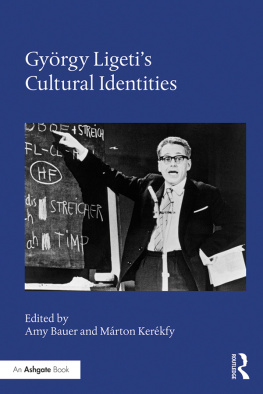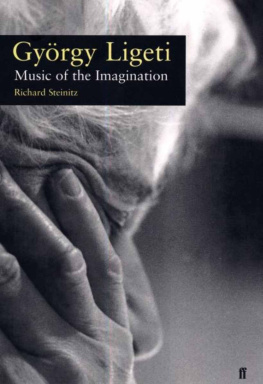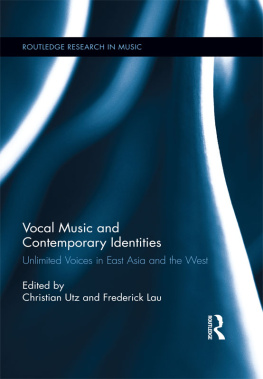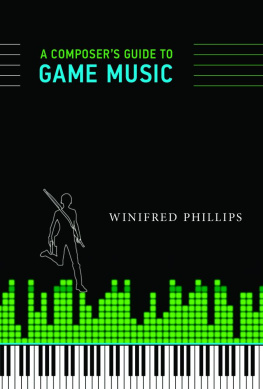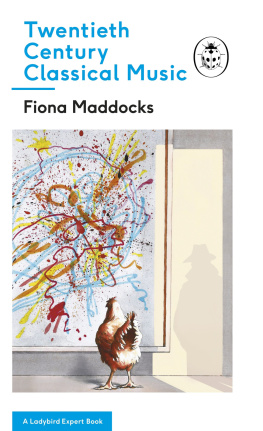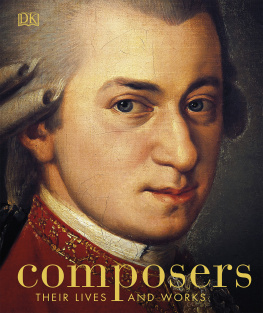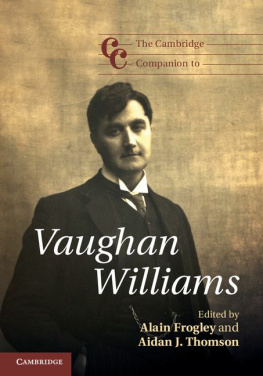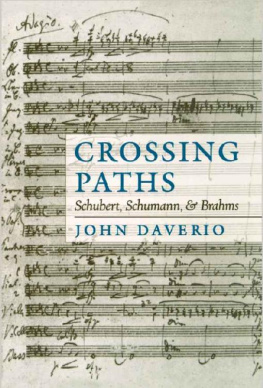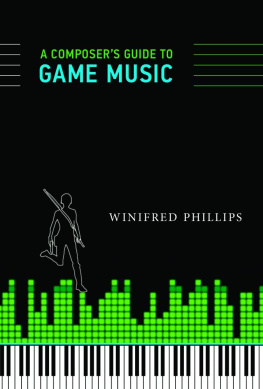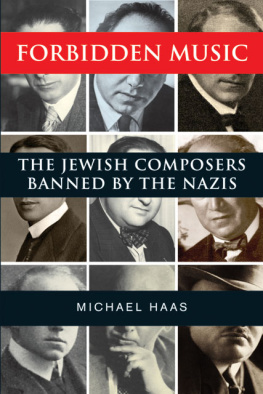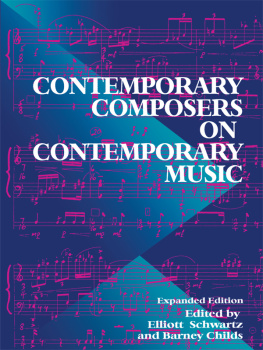First published 2018
by Routledge
2 Park Square, Milton Park, Abingdon, Oxon OX14 4RN
and by Routledge
711 Third Avenue, New York, NY 10017
Routledge is an imprint of the Taylor & Francis Group, an informa business
2018 selection and editorial matter, Amy Bauer and Mrton Kerkfy; individual chapters, the contributors
The right of Amy Bauer and Mrton Kerkfy to be identified as the authors of the editorial material, and of the authors for their individual chapters, has been asserted in accordance with sections 77 and 78 of the Copyright, Designs and Patents Act 1988.
All rights reserved. No part of this book may be reprinted or reproduced or utilised in any form or by any electronic, mechanical, or other means, now known or hereafter invented, including photocopying and recording, or in any information storage or retrieval system, without permission in writing from the publishers.
Trademark notice: Product or corporate names may be trademarks or registered trademarks, and are used only for identification and explanation without intent to infringe.
British Library Cataloguing-in-Publication Data
A catalogue record for this book is available from the British Library
Library of Congress Cataloging-in-Publication Data
A catalog record for this book has been requested
ISBN: 978-1-4724-7364-6 (hbk)
ISBN: 978-1-315-59241-1 (ebk)
Typeset in Times New Roman
by Apex CoVantage, LLC
Bach musicological font developed by Yo Tomita
Amy Bauer is Associate Professor of Music at the University of California, Irvine. She received her PhD in music theory from Yale University, and has published articles in Music Analysis , The Journal of Music Theory , Contemporary Music Review , Indiana Theory Review and Ars Lyrica , and book chapters on the music of Ligeti, Messiaen, Chvez, Lang, the television musical, modernist opera and issues in the philosophy and reception of modernist music. Her monograph Ligetis Laments: Nostalgia, Exoticism and the Absolute (Ashgate, 2011) provides a critical analysis of the composers works, as well as the larger cultural implications of their reception.
Anna Dalos (PhD) studied musicology at the Franz Liszt Academy of Music, Budapest, from 1993 to 1998. Between 1998 and 2002 she attended the doctoral program in musicology of the same institution. She spent a year on a German exchange (DAAD) scholarship at the Humboldt University, Berlin (19992000). She is currently working at the Musicological Institute of the Research Centre for Humanities of the Hungarian Academy of Sciences. She has been a lecturer at the DMA Program of the Franz Liszt Academy of Music since 2007 and was a visiting lecturer at the International Zoltn Kodly Pedagogical Institute of Music, Kecskemt, between 2010 and 2015. Her research focuses on twentieth-century Hungarian music and the history of composition and musicology in Hungary. She has published articles on these subjects as well as short monographs on several Hungarian composers (Pl Kadosa, Gyrgy Ksa, Rudolf Maros). Her book on Zoltn Kodlys poetics was published in 2007 in Budapest. In 2012 she won the Lendlet grant of the Hungarian Academy of Sciences, which made possible the foundation of the Archives and Research Group for Twentieth- and Twenty-First-Century Hungarian Music.
Louise Duchesneau studied piano and musicology in Ottawa, in Montreal, and at the University of Hamburg, where she lectured for many years in systematic musicology. From 1983 to 2005 she was Gyrgy Ligetis assistant, managing the general contact between the composer and the outside world. In 20067 she was a member of musical director Kent Naganos team at the Orchestre symphonique de Montral. Since her return to Germany in 2008, she has been working as a freelance author and translator.
Peter Edwards is Associate Professor and Head of the Department of Musicology, University of Oslo. Here he recently concluded a research project entitled Style and Modernity, funded by the Research Council of Norway. Peter has published on the music of Gyrgy Ligeti in Music & Letters and Music Analysis , and his book entitled Gyrgy Ligetis Le Grand Macabre: Postmodernism, Musico-Dramatic Form and the Grotesque is published by Routledge. He has also worked as a guitarist and composer and has received commissions from leading ensembles and performers.
Volker Helbing studied flute, music theory, musicology and German studies in Hamburg, Freiburg and Berlin. After holding various teaching positions in music theory in Berlin, Bremen and Frankfurt am Main (19952011) and a deputy professorship in musicology in Trossingen (2005/6), he was appointed in 2011 as Professor for Music Theory at the Hanover University of Music, Drama and Media. He published articles on sixteenth-, eighteenth- and twentieth-century music and on French music theory in the eighteenth and nineteenth centuries. He received his PhD in 2005 ( Choreographie und Distanz: Studien zur Ravel-Analyse , published in 2008).
Mrton Kerkfy is Research Fellow at the Budapest Bartk Archives, Editor of the Bla Bartk Complete Critical Edition and Editor-in-Chief at Editio Musica Budapest. He studied musicology and composition at the Franz Liszt Academy of Music in Budapest and received his PhD in musicology from the same institution. His doctoral thesis (2014) explores the influence of East European folk music in Gyrgy Ligetis music. He has published articles on the music of Ligeti and Bartk in, among others, Tempo , Studia Musicologica and Mitteilungen der Paul Sacher Stiftung . He translated into Hungarian and edited Ligetis selected writings (2010).
Frederik Knop is a musicologist and composer from Berlin. He earned a masters degree in musicology after having studied with Helga de la Motte and Christian Martin Schmidt at the Technical University, Berlin. At the same time, he also received composition lessons from the Hungarian composer Robert Wittinger. While pursuing his PhD, he was a lecturer at the University of Hamburg from 2007 to 2010. During this time he received a grant from the Paul Sacher Foundation in Basel to research Gyrgy Ligetis last compositions (especially the Hamburg Concerto and Sppal, dobbal, ndihegedvel ). Knop has taught at the University of Hamburg, Leuphana University, Lneburg, and, most recently, the University of Potsdam. His research interests include the compositional techniques and aesthetics of twentieth- and twenty-first-century European and North American music as well as popular music production. He engages in several musical projects and maintains a mastering studio and performance space for new music in Berlin.
Wolfgang Marx is Senior Lecturer at University College Dublin. His main research interests include the music of Gyrgy Ligeti and the representation of death in music (with a special focus on requiem compositions). He chairs the research strand Death, Burial and the Afterlife at the University College Dublin Humanities Institute. Among his recent publications are Gyrgy Ligeti: Of Foreign Lands and Strange Sounds , edited by Louise Duchesneau and Wolfgang Marx (Woodbridge: Boydell & Brewer, 2011); Death, Burial, and the Afterlife: Dublin Death Studies , edited by Philip Cottrell and Wolfgang Marx (Dublin: Carysfort, 2014); and How I Wonder What Youre At! Sketch Studies of Ligetis Nonsense Madrigals, Contemporary Music Review 31/12 (December 2012), 13548.
Kyoko Okumura is JSPS Overseas Research Fellow in Japan. She studied piano and musicology at Doshisha Womens College of Liberal Arts, Kyoto, and at the University of Osaka. She has been a regular visitor to the Paul Sacher Foundation, where she has been researching Ligetis compositional memos, sketches, drafts and correspondence with a particular focus on works after 1956. She received her Doctor of Literature from the University of Osaka in 2017. Her doctoral thesis explores the influence of electronic music on Ligetis cluster music of the 1960s and tone painting music of the 1970s.
Next page
